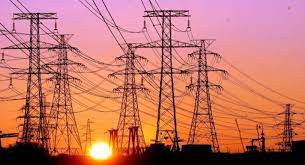
DESPITE bureaucrats in President Emmerson Mnangagwa's government expressing optimism that Zimbabwe's crisis is under control, one of the world's largest lenders struck a pessimistic note this week, warn ing that many of the country's targets were at risk.
Authorities say ongoing efforts helped to build a formidable foundation to rekindle recovery and help Zimbabwe fight its way out of bouts of crises.
Poverty rates have barrelled to almost 40%, piling pressure on plans to reduce the number of people below the food poverty line to 10% by 2025.
“The Gini coefficient has risen from 42 in 2011 to 50 in 2019, and 50,3 in 2023,” the Community Working Group on Health said in a related report this week.
This means the gulf between the rich and poor has widened as crises mount.
In its report, the World Bank laid bare handicaps driving Zimbabwe into perpetual ruin, saying there was so much to tackle if the country was to achieve its Upper Middle Income vision by 2030.
In several prescriptions, authorities have been briefed about fundamentals behind 24 straight years of protracted decay - capital flight, de-industrialisation and job cuts that have fuelled unemployment to 90%.
They have generally chosen to gloss over their mistakes.
- Village Rhapsody: Pay teachers a living wage
- Village Rhapsody: Pay teachers a living wage
- Letters to the editor: Tackling energy poverty requires a 'gas is good for Africa' approach
- Cartoon: October 04, 2022 edition
Keep Reading
But the economy has paid dearly.
The World Bank listed the problems again – two decades of exchange rate fragilities, sporadic booms in inflation, and a lower than prescribed import cover.
Last week, the Reserve Bank of Zimbabwe said it was sitting on reserves worth US$450 million. But that pales into insignificance for an economy that has had to import most of its requirements.
The World Bank also singled out the power crisis.
“Macroeconomic instability is the country’s most pressing development challenge,” it noted.
“High inflation and exchange rate distortions raise the cost of doing business, which in turn is leading to underinvestment, a rise in informal activity and erosion of the fiscal revenue base.
“Macroeconomic instability is further hampering the GoZ’s ability to deliver key services and is undermining the financial performance of energy sector companies, resulting in highly costly power shortages.
“Jointly, this significantly undermines the economy’s long-term growth prospects and hinders progress towards the GoZ’s target of becoming an upper middle-income country by 2030,” the World Bank added.
But Chenayimoyo Mutambasere, an economist at the Centre for Economic Justice told the Independent this week that while the World Bank’s assessment on macroeconomic instability was correct, political instability was the major challenge for Zimbabwe.
“While the World Bank’s assessment of macroeconomic instability is accurate, the underlying issue is political, and any solution must also tackle the political structures that are impeding progress,” she said.
“In Zimbabwe, politics precedes macroeconomic policy, and the policies we see are often designed to support incumbency rather than foster sustainable development. Corruption vulnerability plays a significant role in this dynamic, as policies are frequently skewed to benefit a select few, undermining institutional integrity and economic reform.
“The instability we face is not purely economic in nature but is deeply intertwined with political interests. Until governance and political accountability are addressed, meaningful macroeconomic stability will remain elusive.”
Confirming Mutambasere’s concerns, the World Bank also noted that weaknesses in governance, transparency and accountability further challenged development and inclusion, as well as civic engagement and stability.
Zimbabwe’s 2022 Country Policy Institutional Assessment score was below the Sub-Saharan Africa benchmark.
“The outsize presence of elites in key pro ductive sectors, rent-seeking and patron age, coupled with weak SOE (sate owned enterprises) management and poor service delivery, undermines eco nomic efficiency and equity,” it said.
The bank noted that despite improvements in some human development outcomes, overall public service provision was challenging and underfunded.
“Budget constraints stemming from macroeconomic and other structural challenges impact service delivery in health and education, particularly for poor and rural communities,” the World Bank said.
“The social protection sector remains highly fragmented with limited coverage, with 51% of the extreme poor receiving no benefits from any of the social assistance programmes, reducing capacity to adapt to shocks,” it added.






